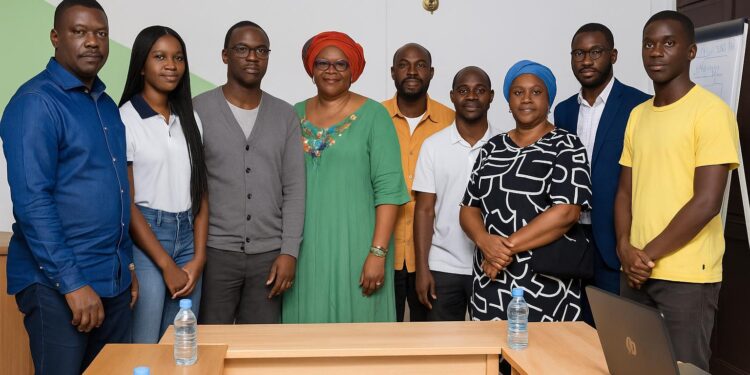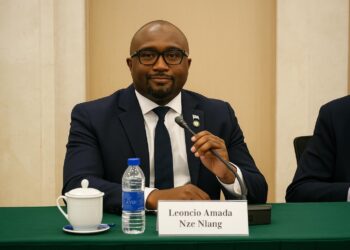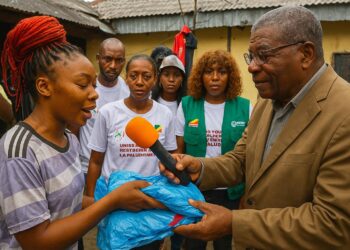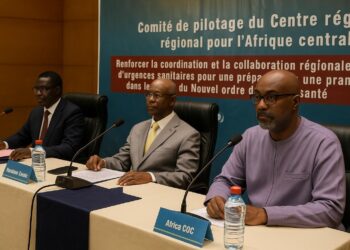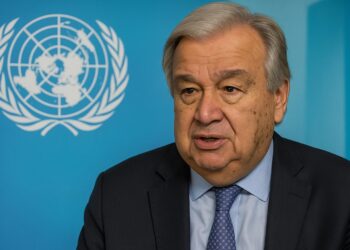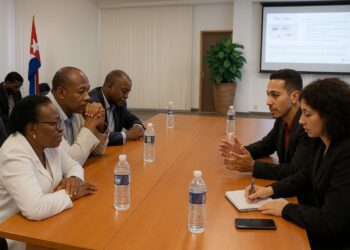Francophonie Backing for Digital Learning
When Louisette Thobi, secretary-general of the Francophone Youth and Sports Ministers’ Conference, stepped into the modest warehouse that serves as EduLab Mobile’s workshop in northern Brazzaville, she declared herself “impressed by the momentum and the workmanship” she witnessed during a recent assessment mission.
Her remarks, delivered alongside Congolese youth officials, resonated within the wider Francophonie network, which has earmarked roughly 75,000 euros this year to pilot mobile laboratories that carry microscopes, 3-D printers and basic coding stations to public schools otherwise deprived of practical science sessions.
The initiative builds on the digitally inclusive agenda adopted at the latest Francophonie summit in Djerba, where heads of state stressed tools that “translate language, location and income barriers into opportunities” for youth across 88 member jurisdictions (OIF 2022).
Inside the EduLab Concept
EduLab Mobile sprang from the civil-society group Havre d’Équité, founded by engineering graduates who once struggled to find oscilloscopes or even reliable internet during their university years in Brazzaville.
Their solution is deceptively simple: retrofit cargo vans with fold-out benches, solar panels and ruggedised tablets, then rotate the units every fortnight between selected secondary schools and two public universities.
Lessons are aligned with the national curriculum to avoid duplication, yet every session ends with a problem-solving challenge—producing a water-quality sensor or coding a basic weather app—that students say cements abstract theories.
Strategic Value for Congo’s Human Capital
Congolese authorities frame the project as part of the National Digital Strategy, itself anchored in the Plan National de Développement 2022-2026, which earmarks more than five percent of public investment for technology infrastructure.
In an interview, Director-General for Youth Herman Mawa argued that mobile labs “prepare the workforce our special economic zones will soon require,” a reference to industrial corridors under negotiation with partners from China and the United Arab Emirates.
World Bank data place Congo’s tertiary STEM enrolment at barely 18 percent of all university students, lower than the Sub-Saharan average of 25 percent; officials view EduLab as one lever for reversing that gap (World Bank 2022).
Regional Echoes and Comparative Initiatives
Beyond Congo, mobile science labs have emerged in Nairobi, Lagos and Antananarivo, yet none so far enjoy the formal backing of the Francophonie, a multilateral body whose soft-power footprint stretches from Quebec to Vanuatu.
Analysts at the Dakar-based think tank IPAR note that such endorsement often unlocks donor co-financing from the European Union and multilateral lenders, creating a multiplier effect that smaller NGOs would struggle to generate alone (IPAR 2023).
Congo’s success in clinching the 2024 Confejes Digital Prize ahead of Benin and Madagascar therefore carries symbolic weight, signalling that Brazzaville can compete regionally in innovation even without the fiscal outlays of Africa’s larger economies.
Challenges and Mitigation Paths
Still, structural hurdles persist, starting with the patchy electricity grid that powers only 65 percent of the nation, according to the African Development Bank; EduLab’s designers opted for rooftop solar arrays to guarantee a minimum seven hours of uninterrupted laboratory time.
Another concern relates to maintenance: microscopes and printers suffer in the tropical humidity that can hit 90 percent during the long rains; to address this, the team sealed equipment in airtight cases with reusable desiccant packs sourced from a Rwandan supplier.
Teacher training may be the thorniest issue. The Education Ministry currently plans short in-service workshops, yet unions advocate for semester-long certifications so that pedagogy keeps pace with rapidly evolving hardware, a debate Thobi promised to relay to ministers at the next Confejes council.
Quiet Diplomacy Around Youth Innovation
Diplomats in Brazzaville interpret EduLab as soft evidence that President Denis Sassou Nguesso’s administration, often scrutinised for its oil-centric economy, is broadening its narrative toward knowledge production without advertising a disruptive policy shift.
A senior French embassy official, requesting anonymity, described the project as “a confidence-building measure that lets young people see their future inside Congo rather than in a visa line,” adding that Paris views the scheme as complementary to its Digital Africa programme.
For Thobi, the next litmus test arrives in October, when the first van is scheduled to park at Lycée Pierre Savorgnan de Brazza. If absenteeism falls and exam scores rise, stakeholders hint that additional funding could come from the upcoming Francophonie Games legacy fund.
Observers at the Economic Community of Central African States argue that a cluster of similar micro-projects could position the region as a proof-of-concept zone for scalable EdTech, attracting venture capital that traditionally skips francophone markets in favour of Nairobi or Cape Town.
Meanwhile, Congo’s Ministry of Foreign Affairs discreetly mentions EduLab during bilateral sessions with multilateral banks, betting that demonstrable social impact will sweeten terms for forthcoming infrastructure loans, according to an internal briefing seen by this magazine.
Whether those diplomatic calculations pay off will depend on data the project plans to release in early 2025.

































